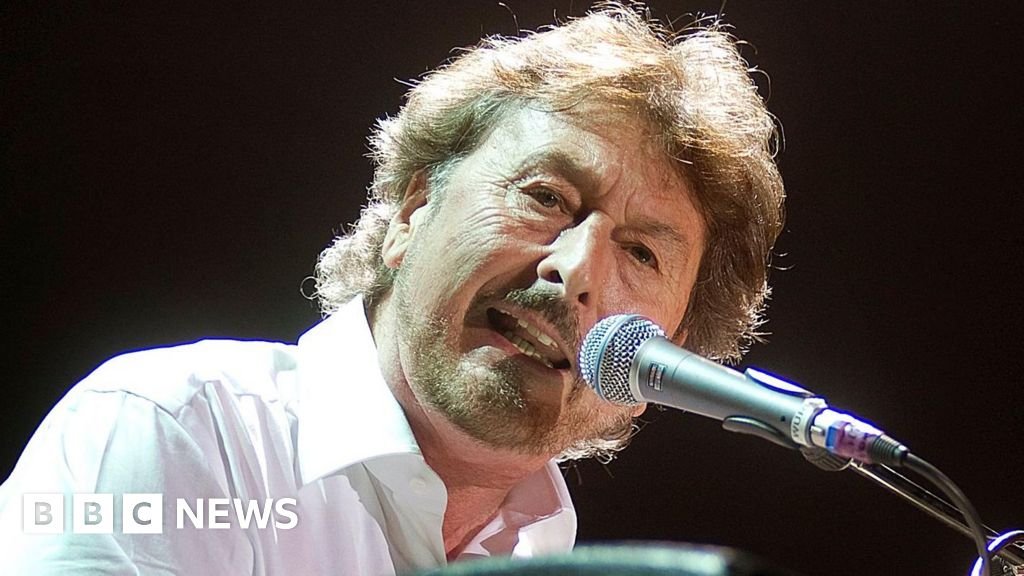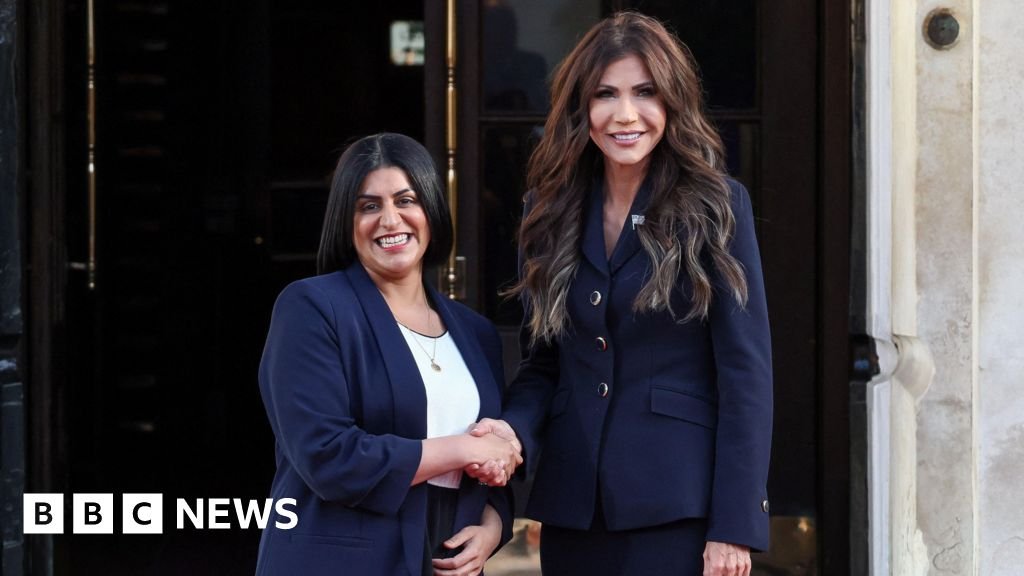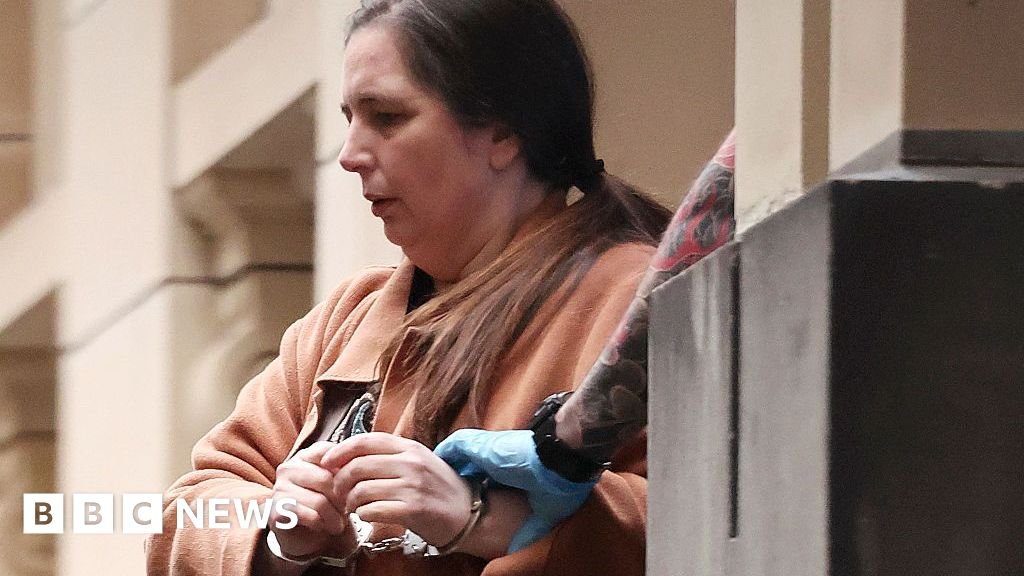France looks set to throw out another PM
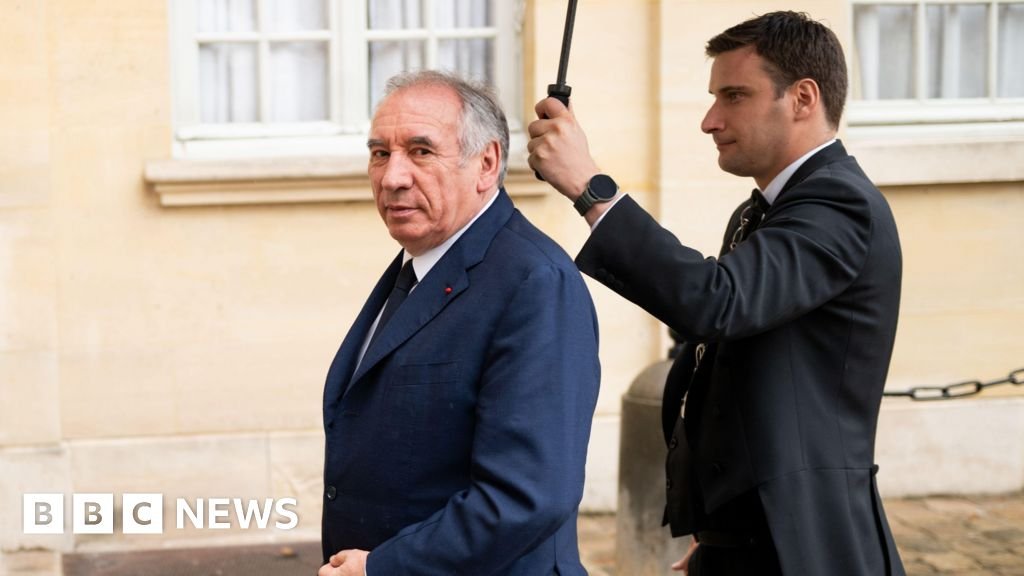
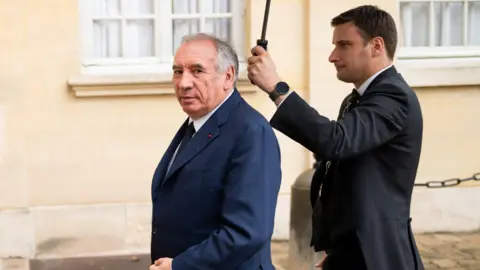 Getty Images
Getty ImagesFrance’s parliament – deadlocked for a year and more poisonously divided than it has been in decades – looks set to throw out yet another prime minister on Monday.
But the acute sense of drama surrounding this latest vote of confidence inside Paris’s Assemblée Nationale is counterbalanced by a despondent consensus that the almost inevitable removal of 74-year-old François Bayrou, after nine relatively ineffectual months in office, will do nothing to break France’s political stalemate.
“It’s a disaster. The situation is absolutely blocked,” veteran political commentator Bruno Cautrès told the BBC.
Others have been even harsher in their diagnosis.
Marine Le Pen, parliamentary leader of the hard-right National Rally party, accused Bayrou of committing “political suicide”.
The prime minister, a consensus-seeking figure from south-west France with a tendency to frown and to bluster, initiated Monday’s surprise vote himself, seeking, as he explained it, to “shock” politicians into agreeing on a way to tackle the country’s looming debt crisis.
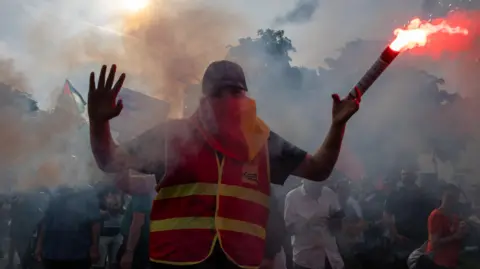 Getty Images
Getty ImagesDescribing France’s spiralling national debt as “a terribly dangerous period… a time of hesitation and turmoil”, Bayrou warned there was a “high risk of disorder and chaos” if parliament failed to back his austerity budget with its aim to slash government spending by €44bn (£38bn).
Bayrou says young people will be saddled with years of debt payments “for the sake of the comfort of boomers”, if France fails to tackle a national debt of 114% of its annual economic output.
But Bayrou’s gamble – variously characterised as a kamikaze gesture, a pointless Cassandra-like prophecy, and an attempt to end his political career with a heroic act of self-sacrifice – looks almost certain to end in failure later on Monday.
Despite some frantic last-minute discussions, it appears clear Bayrou simply doesn’t have the votes.
At the heart of this “crisis” – a word that seems to have spent an entire year dominating French newspaper headlines – is President Emmanuel Macron’s widely derided decision, in June 2024, to call a snap parliamentary election in order to “clarify” the balance of power in parliament.
The result was the exact opposite of clarity. French voters, increasingly unhappy with their brash, eloquent young president, edged towards the extremes, leaving Macron floundering with a weakened minority centrist government, and a parliament so divided that today many rival MPs cannot even bear to shake each other’s hands.
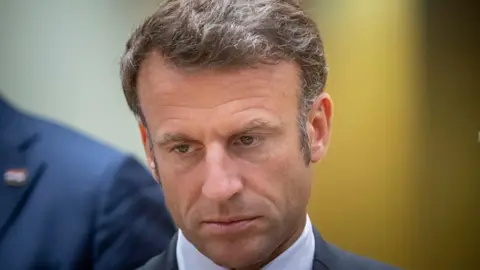 Getty Images
Getty ImagesSo, what next?
Far from the parliamentary power struggles on the left bank of Paris’s River Seine, the mood across France appears to be drifting towards the right and the far right.
“Jordan, Jordan,” shouted several hundred people crowding around the 29-year-old leader of the National Rally, Jordan Bardella, as he arrived at a large agricultural fair in Chalons-en-Champagne, east of Paris.
For an hour, Bardella inched through the crowd, taking selfies with his admirers.
“He seems like a good bloke. Someone you could get a drink with. France is struggling. We pay too many taxes, and we don’t understand how they’re spent. And prices keeping rising,” said Christian Magri, 44, a computer programmer.
“[Bardella] is going to overhaul our country. I’m not at all racist, but I feel that in France we already have a lot of people waiting for housing and we can’t take in all the wretched of the world,” said a woman named Christine.

“He’s a handsome man. His ideas are good. There are too many immigrants coming here. Mr Bardella… wants to put French people first,” said Nadine, 61, who, like many others in the crowd, declined to give her surname.
At some point, in the crush, I managed to reach Bardella and asked if he thought that – after Monday’s confidence vote – there might be another snap election that could see him emerge as France’s next prime minister.
“We’re working on it. This country has been deadlocked for over a year. It is dangerous to leave France drifting like this and to let those who’ve been in power for decades destroy the country. We want to do our best to stop mass immigration into France. If we come to power tomorrow, we will implement a referendum on the issue of immigration,” he said.
And yet few in France believe that President Macron will call another early parliamentary election, or indeed that he will step down from his own role before his term ends in 2027.
More likely is another attempt to find a path towards a functioning minority government. Having repeatedly tried to cut deals on the right, some wonder if Macron might try something new.
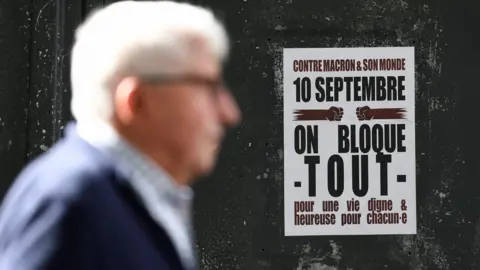 Reuters
Reuters“We think that it’s time for the president to give the left a try because we will have a different method. We will try to reach compromises. We’ve proposed a budget that will make savings but also make investments for the future, for a green transition… while also taxing the richest persons on their fortunes,” said Arthur Delaport, a Socialist Party MP from Normandy.
While speculation continues about who Macron might chose as his next prime minister, other challenges are looming.
There is growing focus here on the prospect, not just of significant industrial action in the coming weeks, but of a wave of street protests. A fledgling grass-roots movement, calling itself “Let’s Block Everything,” has been active on social media, urging French people to bring the country to a standstill this Wednesday.
“There is a bubble of exasperation in the country,” explained the commentator, Bruno Cautrès, offering a warning to Macron.
“Macron has been extremely, extremely active at the international level, particularly with Ukraine these last two weeks. And I think that it is time that Macron is talking to the French. Because…. there is a very high level of anger, frustration, tensions.”
Discover more from News Hub
Subscribe to get the latest posts sent to your email.





